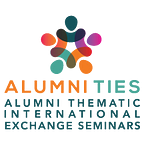LEARN TO ASK QUESTIONS
by Nasiba Jakbarova
Today in Uzbekistan, the internet is the “go to” for media and information. There are various forms of media that help to inform, educate, and entertain our society. Young Uzbeks spend most of their time on social media. Media and the importance of media literacy is becoming a hotly contested issue. It is becoming impossible to control the flow of information and monitor what our youth share and post. All too often they post and share messages and information without checking the sources. As a result, they become victims of misinformation, disinformation, and fake news. In October 2020, I participated in an Alumni TIES seminar on “Shaping the Global Narrative on Media Literacy” and increased my knowledge about media literacy. The experts’ presentations during the seminar inspired me to teach media literacy skills to my students and colleagues. In February 2021, I was awarded a small grant from the U.S. Department of State to enact a community-based project on media literacy education. This was the first step of promoting media literacy to students and teachers in my region and I decided to name the project, “Learn to Ask Questions.” Through this project, students and teachers will be able to analyze the media messages by asking Who, What, When, Which, Why, and How questions.
Our project team designed the course to include the analysis of common writing structures of hard news and feature stories, components of English language newspapers, and a comparison of print newspapers and news websites. The students received many handouts with exercises in order to familiarize themselves with the various skills and concepts taught during the lectures. As a result of this course, students were able to develop not only their media literacy skills but also language skills.
We also conducted an online course for English language teachers. Though they were uncertain about the effective way to integrate media literacy into their teaching, EFL teachers expressed a high motivation to teach media literacy. They shared that they are ready to incorporate media literacy into their teaching of English language and believed these activities will increase their students’ motivation and academic achievement. During the online course, teachers discussed the ways in which media literacy already appears to some extent in their instruction through current activities like discussing media content.
A month after the course, the teachers confirmed that including media literacy in an EFL classroom helped to motivate students and engage them in learning. To teach media literacy, the teachers incorporated new approaches of teaching and learning, different from the classical methods. Media literacy integration, according to respondents, creates new classroom dynamics and allows students to meet their academic goals. However, when teaching media literacy to their students, the teachers discovered several challenges. Some teachers said that in order to teach media literacy, every classroom should be equipped with a computer, wireless connection, speakers, and other necessary devices. The others added that some schools, especially in rural areas, suffer from a poor-quality infrastructure and absence of academic resources. Others identified another issue which is the lack of media literacy training for educators. The teachers agreed that the media literacy project cannot be realized unless teachers receive specialized training that allows them to effectively deal with the new course. To share their knowledge and skills developed from the online course with other teachers, they led master classes for other teachers in their schools so that these teachers could incorporate media and information literacy across multiple academic disciplines.
Both the online and offline three-month sessions presented a wonderful opportunity for both trainers and participants to develop their media literacy, communication skills, IT skills, as well as language skills in writing articles through collaborative activities. In September 2021, I am going to widen my audience to work with English language teachers from different villages in my region. These teachers have fewer opportunities for trainings because of poor internet connection. I would also like to organize an English language speaking club focused on media literacy education.
Learn to Ask Questions is funded through an Alumni TIES small grant from the U.S. Department of State.
